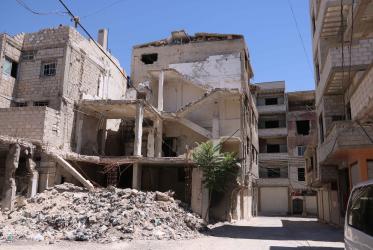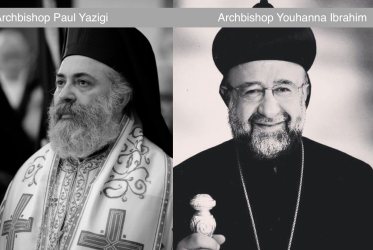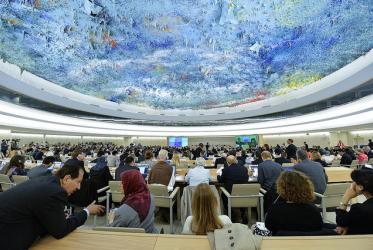Displaying 1 - 19 of 19
WCC renews call for release of archbishops of Aleppo
28 February 2022
WCC expresses hope for work of the Syrian Constitutional Committee
01 November 2019
Yet another sad anniversary for Christians in war-torn Syria
17 October 2018
WCC decries escalation of Syria conflict
07 April 2017
‘No Christmas bells in Mosul’ for a third year, says Assyrian priest
14 December 2016
In Syria and Iraq, minorities must come out of the darkness
28 November 2016
Out of the darkness
28 November 2016
Paralyzed by shock
28 November 2016
Driven out
28 November 2016
Fleeing from – rather than to – a place
10 February 2016
WCC calls for an end to foreign military interventions in Syria
12 October 2015
WCC, 유엔인권이사회에 이라크의 종교 소수민 공동체들에 대한 지원 요청
02 September 2014
Consultation brings rights of religious minorities into focus
18 September 2013










